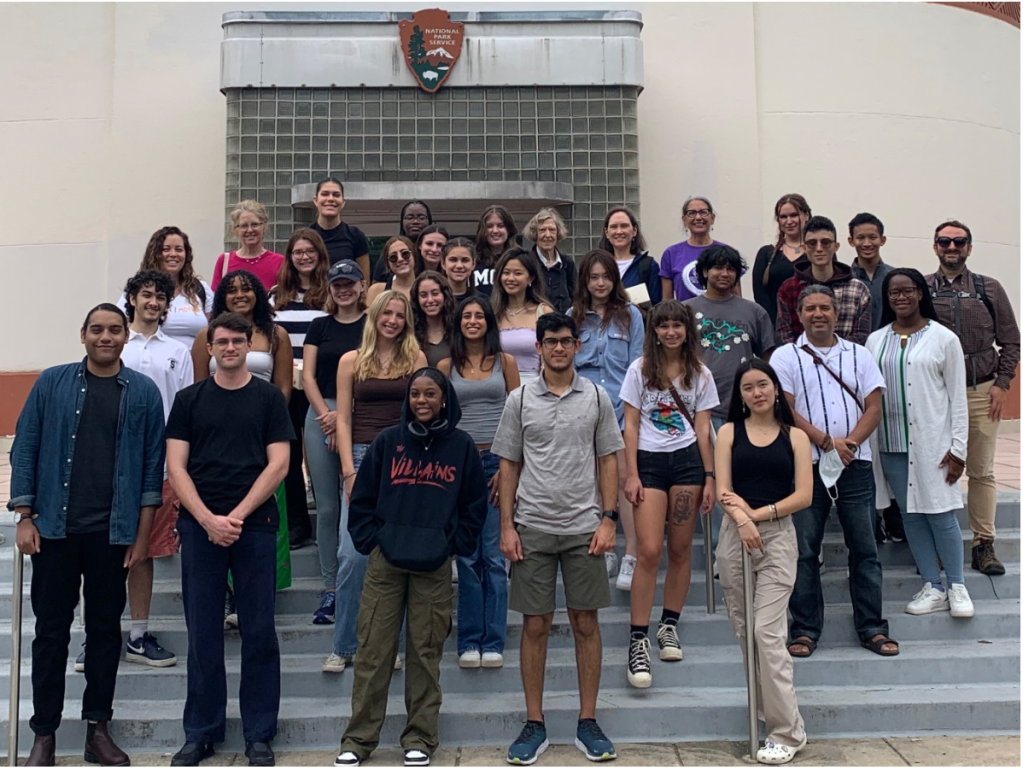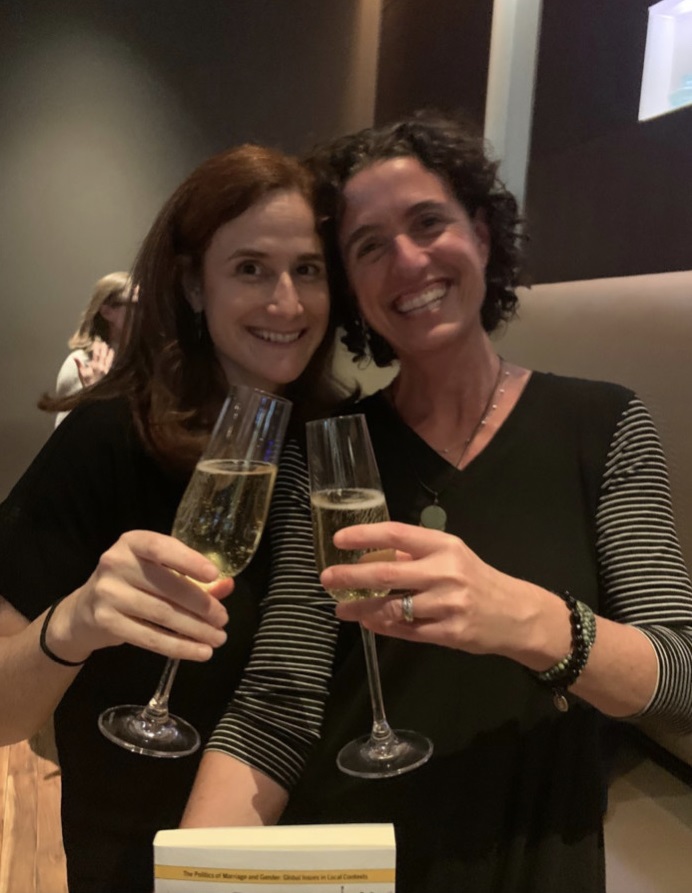
Traveling from Emory to Ocmulgee Mounds National Historic Park for a special place-based and community-engaged learning experience, a first-time interdisciplinary cohort of thirty-five faculty and students from Dr. Debra Vidali’s Anthropology 190–Land, Life, and Place, Dr. Loren Michael Mortimer’s History 285–Introduction to Native American History, Heidi Aklaseaq Senungetuk’s Music 460RW–North American Indigenous Music and Modernity, and Emory’s Native American Student Association participated in a vibrant celebration of Southeastern Native American cultures and heritage. This marks the first time Emory University organized an official trip to the Ocmulgee Mounds National Historic Park.
This celebration represents a collaboration with the Muscogee Nation and the Ocmulgee Mounds Association to enact Mvskoke sovereignty and educate visitors about the Indigenous presence on the land. Emory students experienced a diverse array of activities that showcased the rich heritage of the region’s Indigenous peoples. Traditional cultural crafts, captivating storytelling sessions, and educational programs provided students with meaningful connections to the living histories and thriving communities of diverse southeastern Native American people.
Read the full blog post here!
